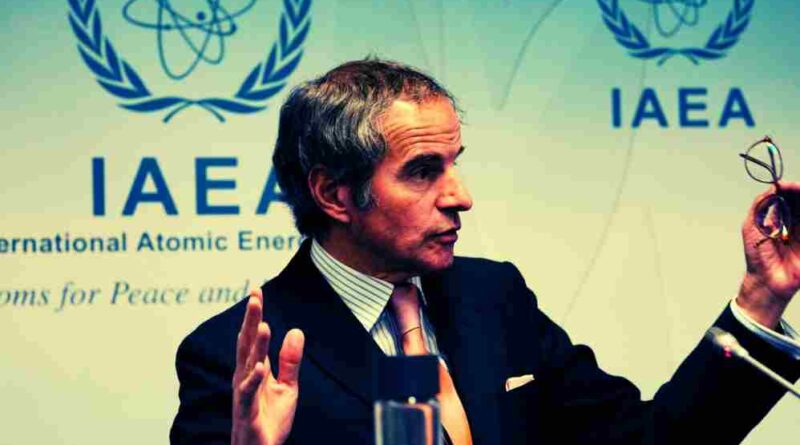Iran Halts Nuclear Transparency: What the President’s New Law Means for Global Security
In a move sending ripples across international diplomatic circles, Iranian President Masoud Pezeshkian has signed a controversial new law that suspends the country’s cooperation with the International Atomic Energy Agency (IAEA). The decision, made official just days into his presidency, marks a critical shift in Iran’s posture toward the global nuclear watchdog — and it’s raising serious questions about the future of nuclear diplomacy in the Middle East.
A Dramatic Shift Under a New Presidency
President Pezeshkian, elected as a reformist candidate promising engagement with the world, surprised many by approving a parliamentary bill that had been in the works for months. While Pezeshkian campaigned on reviving the 2015 nuclear deal and mending diplomatic bridges, this move appears to signal a more complex balancing act between Iran’s internal political factions and its international obligations.
The law demands an immediate suspension of voluntary transparency measures that had allowed IAEA inspectors expanded access to Iran’s nuclear facilities. These measures were seen as essential in monitoring Iran’s nuclear activities and ensuring compliance with non-proliferation standards.
Why Now?
The decision isn’t happening in a vacuum. It follows a recent resolution by the IAEA’s Board of Governors that criticized Iran for its lack of cooperation and transparency regarding undeclared nuclear sites. Iranian lawmakers perceived the resolution as politically motivated, accusing Western powers — particularly the U.S., France, Germany, and the U.K. — of using the agency as a pressure tool rather than a neutral observer.
By passing this law, Iran’s parliament aimed to send a strong message: that the country will not tolerate what it sees as international double standards and bullying tactics. For President Pezeshkian, signing it into law may have been a concession to conservative power centers, particularly the Islamic Revolutionary Guard Corps (IRGC) and hardliners in the judiciary and parliament, who remain deeply skeptical of Western engagement.
What Does the Law Actually Do?
Under the new legislation, Iran will:
- Suspend the Additional Protocol — a voluntary agreement that allowed short-notice inspections by the IAEA.
- Restrict access to surveillance cameras and data at nuclear sites.
- Cease real-time monitoring of uranium enrichment levels.
- Prevent IAEA inspectors from conducting extended interviews with nuclear scientists or accessing military-adjacent facilities.
While the law doesn’t completely sever ties with the IAEA, it essentially rolls back key transparency measures that have been in place, in various forms, since the early 2000s.
A Blow to the JCPOA?
For those hoping for a revival of the Joint Comprehensive Plan of Action (JCPOA) — the 2015 Iran nuclear deal — this move casts a long shadow. The JCPOA had already been hanging by a thread after the U.S. withdrawal in 2018 and Iran’s subsequent escalations. Now, with reduced oversight from the IAEA, verifying Iran’s compliance with any renewed deal becomes substantially harder.
Western diplomats have voiced deep concern, warning that the new law could push Iran further away from diplomacy and closer to nuclear breakout capability. Meanwhile, Israeli officials have labeled the move “a red flag,” renewing calls for international pressure and, in some quarters, threats of preemptive action.
Domestic Pressures vs. International Expectations
It’s important to understand that this law wasn’t crafted overnight. Iranian lawmakers passed the bill before Pezeshkian even took office, presenting him with a political dilemma: veto the law and risk alienating powerful factions at home, or sign it and risk further isolation abroad.
In many ways, Pezeshkian’s decision reflects the deep fractures within Iranian politics. Even a reformist president must navigate a system where the Supreme Leader, the military elite, and conservative parliamentarians hold significant sway. Pezeshkian’s apparent concession may be his way of maintaining political breathing room — for now.
What Comes Next?
The IAEA has not yet formally responded to the new law, but a tense standoff seems likely. Expect emergency meetings, urgent diplomatic calls, and possibly new sanctions or countermeasures from Western governments. The U.S. State Department has already hinted at consequences, while European leaders are reportedly discussing how to respond in a way that avoids complete diplomatic breakdown.
For everyday Iranians, the implications are less abstract. Reduced international cooperation could mean more sanctions, tighter economic conditions, and prolonged isolation — the very things many voters hoped Pezeshkian would work to reverse.
A Defining Moment
Ultimately, this law could define Pezeshkian’s presidency — not just in terms of foreign policy, but also in how he manages Iran’s deep internal divides. The world will be watching closely to see whether this is a temporary maneuver to buy domestic goodwill or the beginning of a more assertive, nationalistic phase in Iran’s nuclear strategy.
Either way, the global nuclear balance just got a little more complicated.
Disclaimer
The information and content shared on digitalgithub.com — including articles, blogs, news, guides, and other resources — is intended for general informational and educational purposes only. We do not guarantee the completeness, reliability, or suitability of any information. Always seek the guidance of a qualified professional before making decisions based on the information you read. Use this site at your own risk.

